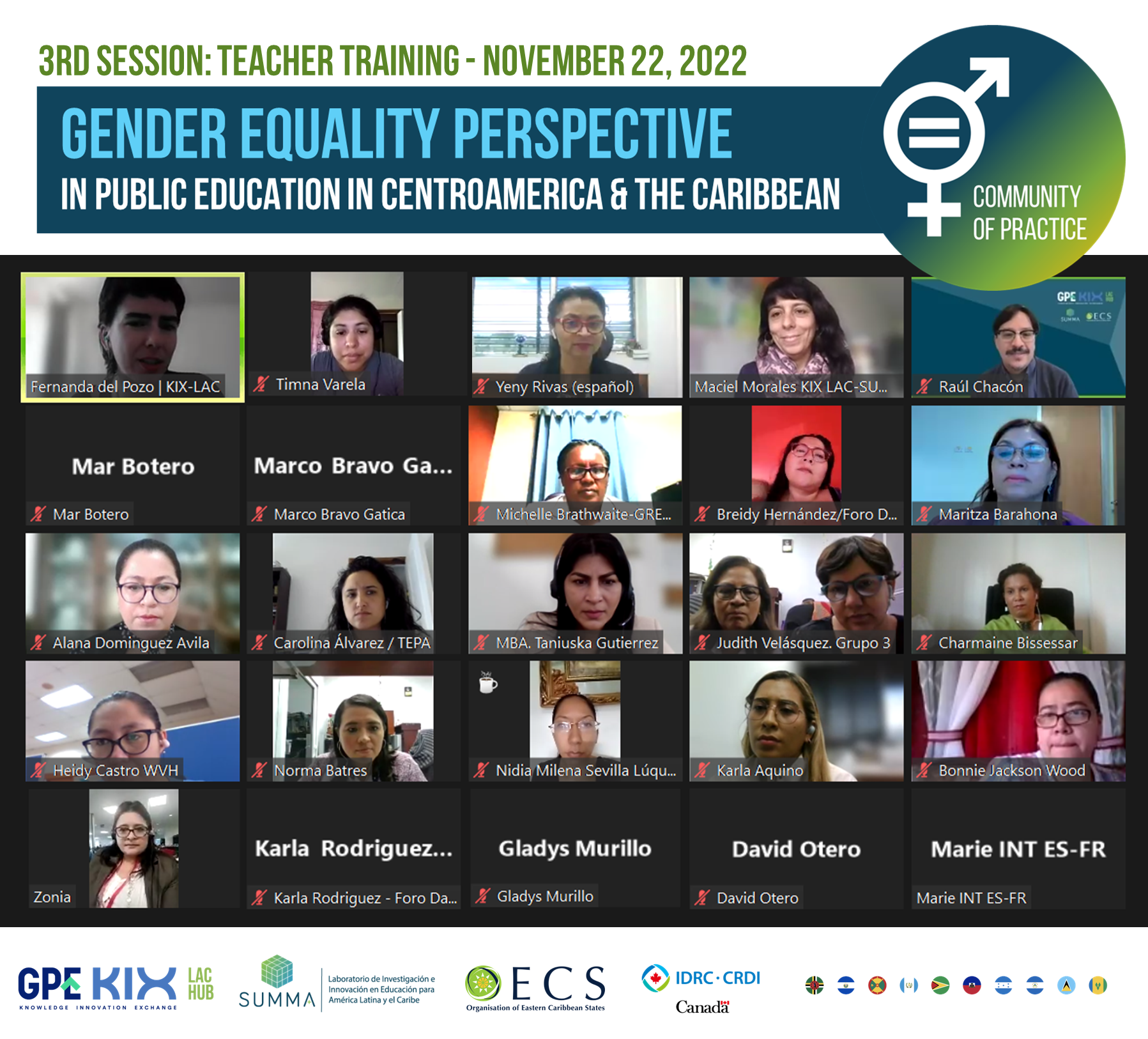
The KIX LAC Community of Practice on Gender and Education held its third work session and webinar "Educational Policies for Teacher Training with a Gender Equality Perspective in Latin America and the Caribbean". This gathering, the third of 5 sessions, had the objective of bringing together again members of the community and of the public interested in the subject, to continue working on the process of designing and implementing initiatives with a gender perspective based on experience, focusing, in this opportunity, on educational policies of teacher training with a gender perspective.
The presentations panel was inaugurated by Yeni Rivas, Gender Manager for the Ministry of Education of El Salvador and co-organizer of the KIX LAC Community of Practice, who presented on "Teacher training as a tool to incorporate equity and equal educational opportunities for women and men”, during which she assured that the generation of policies around this issue must be inter-sectoral, in addition to being based on legal frameworks supported by the educational system so that policies may have continuity over time.
Likewise, she valued the importance of diagnosing gaps in educational systems, because school plays a fundamental role when it comes to deconstructing or teaching new learning;
Next, Michelle Bratwhite, Project Specialist from the Ministry of Education of Grenada, shared the country’s experience, where there are still high levels of violence against women and girls, physical abuse and domestic violence. In this sense, the Ministry of Education together with the Ministry of Social Development, Housing and Gender Affairs are working on initiatives and curriculum policies that address this problem.
Some of them consider differentiating the types of students, in order to include them all; training for basic and tertiary education teachers; and the "Spotlight" initiative, focused on addressing gender-based violence. The scope of this initiative includes: the introduction of non-traditional families, gender norms, discrimination of LGTBQ+ students, implementation of strategies based on strategies, awareness work and teacher collaboration, an inclusive policy in the curriculum and learning processes.
Ending the panel, Alana Domínguez, representative from the Ministry of Education of Honduras, shared their experience that has been implemented nationally, highlighting that it has been based on the SDG 5, which indicates girl and women empowerment. Likewise, she stated the importance of carrying out diagnoses at local level and working mainly with teachers, since the latter do not have the necessary pedagogical tools to mainstream gender-based education, and often social actors do not support this shift in paradigm.
At the close of this third gathering, community participants had the opportunity to ask the speakers questions, and were invited to participate in the fourth session that will take place during January 2023.
